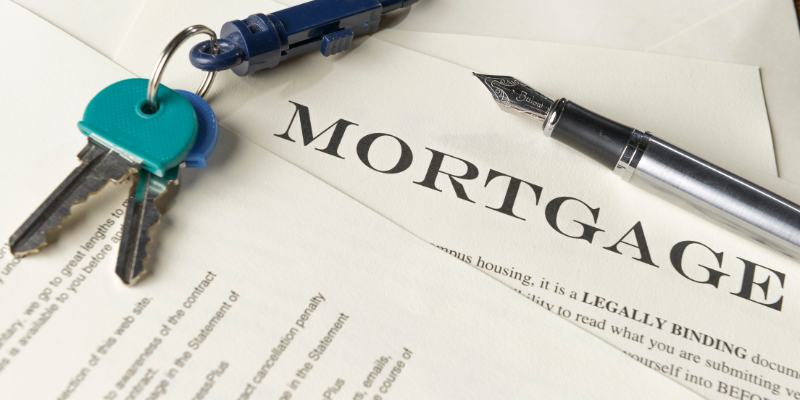
Understanding the Process of Selling a Mortgaged House
Selling a house with a mortgage in Boston involves several important steps that homeowners need to understand. The process begins with determining the outstanding balance on your mortgage, which is crucial for setting a realistic asking price that covers both the loan and any additional costs associated with selling.
Homeowners should contact their lender to obtain a payoff statement detailing the exact amount needed to satisfy the mortgage at closing. It’s necessary to take into account Boston’s real estate market trends, as local property values can influence pricing strategy and timing.
Engaging professionals familiar with the Boston area can provide valuable insights into market conditions and help navigate potential challenges. During negotiations, it’s critical to disclose existing mortgage obligations to prospective buyers, ensuring transparency.
Once an offer is accepted, coordinating with both the buyer’s lender and your own is necessary for a smooth transaction. This includes arranging for an appraisal and addressing any contingencies related to financing or inspections typical in Boston’s competitive housing market.
Understanding these elements ensures that selling a mortgaged house proceeds efficiently while meeting all legal and financial requirements specific to Massachusetts real estate laws. If you’re looking for a stress-free solution, CNC Offers can help guide you through the process and provide fair options tailored to your situation.
Step-by-step Guide to Selling a Home with a Mortgage
If you’re planning to sell a house with an existing mortgage in Boston, understanding the process can help ensure a smooth transaction. Start by contacting your lender to determine the outstanding balance on your mortgage, as this figure will be crucial when setting your asking price.
Next, research the Boston housing market to establish a competitive price. Once you’ve set an asking price, prepare your home for sale by addressing any necessary repairs or upgrades that can enhance its appeal to potential buyers.
During this time, gather all pertinent documents related to your mortgage and property, as these will be needed for the closing process. When you receive offers, carefully review them to ensure they meet or exceed the amount needed to pay off the mortgage while covering closing costs and other fees.
Upon accepting an offer, work closely with your attorney to navigate through negotiations and inspections. Finally, coordinate with your lender to settle the remaining mortgage balance at closing, ensuring that all financial obligations are met before transferring ownership of the property. For personalized guidance and options tailored to your situation, don’t hesitate to contact CNC Offers today.
How to Sell a House with Negative Equity
Selling a house with negative equity in Boston can be challenging, but it is not impossible. Homeowners facing this situation need to carefully consider their options.
Negative equity occurs when the remaining mortgage balance exceeds the property’s current market value. In such cases, a short sale might be a viable option, where the lender agrees to accept less than what is owed on the mortgage.
It’s crucial for homeowners to collaborate closely with their real estate specialist and lender to negotiate terms that are acceptable to all parties involved. Additionally, understanding the local Boston housing market conditions can provide valuable insights into pricing strategies and timing for selling the property.
Consulting a financial advisor or real estate attorney may also help navigate potential tax implications and legal considerations associated with selling under these circumstances. Homeowners should communicate openly with their lender about their financial situation and explore alternatives like loan modification or refinancing before deciding to sell at a loss.
Preparing Your Mortgaged House for Sale: Essential Steps
Preparing your mortgaged house for sale in Boston involves several important steps to ensure a smooth transaction and maximize your property’s appeal. First, evaluate the current state of your home, focusing on necessary repairs and upgrades that could enhance its market value.

Consider conducting a pre-inspection to identify potential issues that buyers might notice. Decluttering and depersonalizing the space can make it more attractive to prospective buyers by allowing them to envision themselves living there.
Pay special attention to curb appeal, as first impressions are crucial; this includes maintaining the lawn, trimming shrubs, and possibly adding fresh paint or new fixtures to the exterior. Inside, a fresh coat of neutral paint on the walls can brighten up rooms and create a more inviting atmosphere.
If possible, stage your home with stylish furniture and decor to showcase its full potential. Setting a competitive price that considers both the Boston housing market and your outstanding mortgage balance is also key to attracting serious buyers.
Preparing all necessary documentation related to your mortgage ensures that you can address any buyer questions promptly, facilitating a seamless selling process. For a faster alternative, you can also work directly with cash home buyers in Boston and neighboring cities, who provide quick offers without the need for extensive repairs or staging.
Financial Considerations When Selling a Home with an Outstanding Loan
Sellers with a mortgage on a home in Boston need to think about a number of financial factors before selling the home in order to finalize the transaction properly. Knowing the current mortgage payoff amount is important because it sets a ceiling on how much of the home sale proceeds a seller can keep.
In order to sell a house, the owner needs to contact a lender for a payoff statement to receive the amount they owe on the sale. In the Boston area, cash home buyers easily sell homes; therefore, the owner should work with them to set the sale price beyond the loan balance.
In selling the home, the seller must also consider the potential closing costs as well as the prepayment penalties for paying off the mortgage. Equity is the most important financial factor, as sellers with positive equity can make a profit after paying off the settlement loan, while sellers with negative equity need to pay additional money at closing.
In order to sell homes with existing mortgages, Boston homeowners need to fully understand how these financial elements work together.
Common Challenges in Selling Properties Under Mortgage and How to Overcome Them
Many people wonder what is involved in selling a home with a mortgage in Boston and what the difficulties might be. One is making sure that the home can be sold at a price that at least covers the remaining outstanding mortgage, particularly in a case when the value of the property has gone down dramatically or the property value has not increased at the expected rate.
Real estate professionals have to cooperate with the borrowers to establish an asking price that would maximize sales proceeds but also has a reasonable chance of attracting a buyer. Some buyers might not appreciate the possibility that the length of time to close is longer than expected because of appraisal or buyer loan processing problems.
These problems can be minimized by keeping the home in good condition and fixing any issues that they might face, which could reduce the sales price with the help of a pre-inspection. The most important factor for the seller is to combine all of the proceeds and to pay the rest to avoid the net closing cost loss.
By dealing with these potential problems first, homeowners can make selling a home under mortgage in Boston easier to deal with than otherwise would be the case.
Calculating Profit: What You Need to Know Before Selling Your Mortgaged House
Estimating profits accurately is important when selling a mortgaged house in Boston and should inform your decisions. Begin with your outstanding mortgage balance because it is the key deduction when calculating the selling price.
The state of the real estate market in Boston and the surrounding areas is a major variable to consider when selling your home. Also, the brokerage and the legal paperwork for the selling and other closing costs, together with the potential repair staging and other closing costs, would need to be netted out of what you anticipate earning.
Also, the Boston region is known for exorbitant property taxes, so it is important to know the basic structure and how it applies to the property in question. It is also important to note the prepayment mortgage penalties that you may incur, which are when you finish paying your mortgage earlier than the agreed-upon period.
By systematically working out and calculating these variables, the property owners will be able to anticipate the selling monetary gains while also being aware of the competitive Boston real estate setting.
Closing Costs and Fees Associated with Selling a Mortgaged Property

When considering a mortgage in Boston and selling a house, it is essential to understand the closing fees and costs. These expenses can be highly detrimental to the net profit from the transaction.
The seller will need to first pay the agent a commission fee as a percentage of the home selling price. This fee is usually between 5% and 6% of the sale price. Then there are the costs of title insurance and escrow for the transaction of the house’s ownership.
Before selling, a homeowner needs to pay any existing mortgage and book closing fees in order to pay off the profit from the mortgage. These fees are a crucial component of the closing costs, as they tend to cover the outstanding mortgage on the house with possible punitive interest for prepayment.
Most of the counties impose transfer fees, and coupled with the other charges, the seller needs to include these as part of their expenses. This is essential for proper budgeting. Closing will come as a surprise for owners that do not understand these costs.
The Impact of Interest Rates on the Sale of Homes with Mortgages
No matter how one approaches selling a house with a mortgage in Boston, it is always important to appreciate the effects that interest rates tend to have on the rest of the economy. Interest rates have a direct impact on affordability, and when they increase, the monthly mortgage payments will go up, which greatly helps to decrease the number of buyers available.
Potential buyers are still spending money on homes, but they may have a harder time selling due to them losing out on a favorable money cycle, and that may help speed up the selling period. Homes are actually more expensive than they would otherwise be, and it is essential that people become more familiar with interest rates, as they are the people who will provide the money in Boston.
Sellers of homes in Boston have to remember that the marketplace there is extremely competitive, and people hate losing due to the changing interest rates there, which are still to the advantage of the buyer. That is the main reason they have to help them come up with a plan they appreciate most, and also because it strengthens them accessorily.
Navigating Home Inspections and Appraisals During the Sale Process
When dealing with bank appraisals and home inspections during the sale of a home with a mortgage in Boston, home appraisals are of utmost importance. When these home appraisals are conducted, home sellers need to be sure that the home surpasses the appraiser’s scrutiny. Home appraisers are concerned with the plumbing, electrical, and structural integrity of the home.
As such, having the home determined pre-listing and correcting the issues identified might ameliorate the confidence a buyer has in the home. The appraisal process has a central value in the real estate marketing of homes.
An appraiser is legally supposed to establish value for two purposes, one being that the value of the home is in relation to the offer being made and the loan. Having an astute and broad knowledge of real estate in the Boston area and beyond may enable a seller to visualize an appraiser’s expectations and thereby keep the seller from overpricing.
Consultation and communication with skilled and trained Boston real estate specialists can help in home purchase and home sale transactions. Placing a catalogue of the home improvements made with the loan application can streamline the appraisal process by demonstrating to the potential buyer and lender that the home has considerable value.
Tax Implications of Selling a House Encumbered by a Mortgage
In Boston, when selling a house with a mortgage, this type of transaction has very specific tax liabilities that need to be looked at. Of primary concern is how the capital gains tax applies when selling your home.
If you have resided in the property as your physical residence for at least two of the five years before the date of sale, you may be eligible for up to $250,000 or, in the case you are married filing jointly, up to $500,000 in gains exclusion. Keep in mind that this exclusion is possible only if you have resided in the property as your primary residence for the necessary time.
In addition, the sale proceeds are reduced by the remaining mortgage balance, but in the case of capital gains payable, there are no positive tax consequences unless forgiven debts are over certain amounts without covered possible caps. Homeowners, in other cases, are able to consider state rules that could influence taxes regarding the sale of property, especially adjusted rules within the state of Massachusetts that may apply to the sale of other taxable transaction liabilities.
Consulting with tax advisors helps determine bespoke perspectives that aid in understanding federal and Massachusetts tax laws regarding selling mortgaged real estate in Boston.
Can You Sell Your House If You Still Have a Mortgage?

Absolutely, you can sell your house even if you still have a mortgage. In Boston, as in many other locations, selling a home with an existing mortgage is a common process.
When you sell your house with a mortgage, the proceeds from the sale are typically used to pay off the remaining balance of your mortgage at closing. This means that when the transaction is completed and ownership transfers to the buyer, any outstanding loan amount will be settled with your lender.
It’s important for homeowners in Boston to understand their mortgage payoff amount and any potential prepayment penalties associated with their loan. For those seeking a quicker, hassle-free alternative, working with a company that buys homes in Massachusetts and nearby cities can simplify the process by providing fast offers without the delays of traditional listings.
By ensuring that all necessary paperwork is in order and understanding how much equity you have built up in your property, you can confidently proceed with selling your house while handling any mortgage-related concerns effectively.
Can You Sell a House with a 30-Year Mortgage?
Yes, it is possible and quite common to sell a house with a 30-year mortgage in Boston. Homeowners are often puzzled. Is it possible to sell my house during the mortgage? And the answer is affirmative; it pays a mortgage during the loan period.
In Boston, the answer is yes. It is the answer that a real estate specialist would give. Using the homes that have appreciated in value in Boston, it is common to sell homes with 30-year mortgages.
Every homeowner pays close attention to the real estate market, where Boston area lending pays. With the right agent from the right area, lenders can avoid penalties, which tend to accrue from the time the loan is obtained.
Therefore, it is easy to see that mortgage holders in Boston have the option to sell their houses, regardless of a 30-year mortgage.
Do you need to sell your home, even if there’s still a mortgage on it? Sell quickly, avoid costly repairs, or choose a hassle-free sale. CNC Offers is here to help. We offer fair cash offers, handle all the details, and make the process seamless. Ready to sell or have questions? Call us at (781) 205-9928 for a no-obligation offer. Get started today!
Helpful Boston Blog Articles
- Selling Your Home By Owner In Boston, MA
- Closing Costs When Selling A House Without An Agent In Boston, MA
- Sell Your Boston, MA, Home When Behind On Mortgage Payments
- Selling Inherited Real Estate With Multiple Owners In Boston, MA
- Who Covers Appraisal And Inspection Costs In Boston, MA, Real Estate
- How To Navigate Selling A House With Tenants In Boston, MA
- Who Pays Taxes When Selling A House In Boston, MA
- Guide To Selling Jointly Owned Property In Boston, MA
- Selling A House With A Mortgage In Boston, MA
- Guide To Selling Your Boston, MA, Home With Mold

| MORTGAGE DEBT | HOME LOAN | STAKE | REALTOR | BANK | HOME EQUITY |
| TAXED | MONEY | PREPAYMENT PENALTY | LENDING RATE | FINANCIAL INVESTMENT | DOWN PAYMENT |
| CASH | FIRST LIEN | CREDIT | TRANSACTION COSTS | BUDGET | HOMEOWNERSHIP |
| LINE OF CREDIT | HOME EQUITY LOAN | FINANCE | WITH A MORTGAGE IS | PAY OFF YOUR MORTGAGE |
